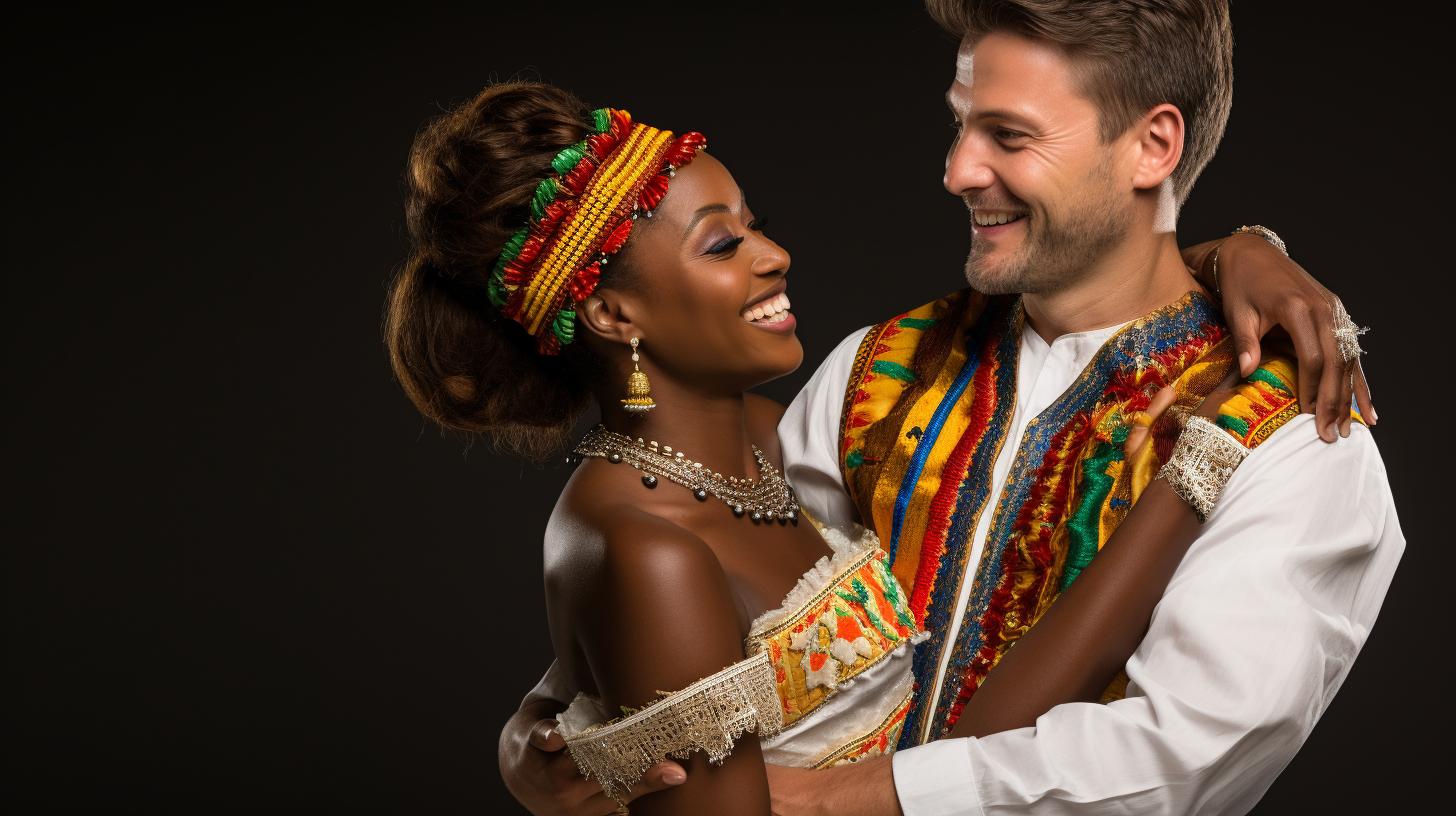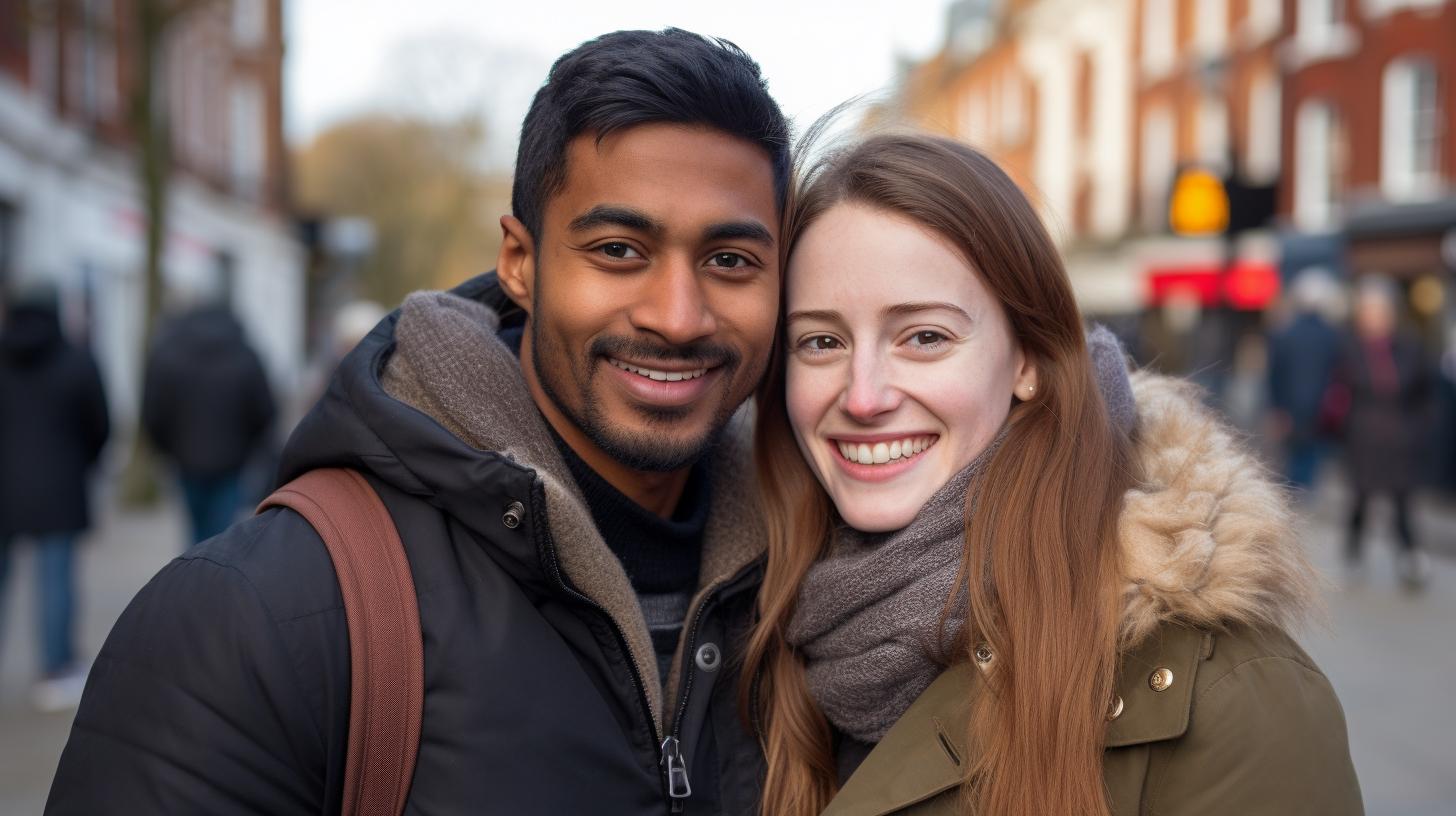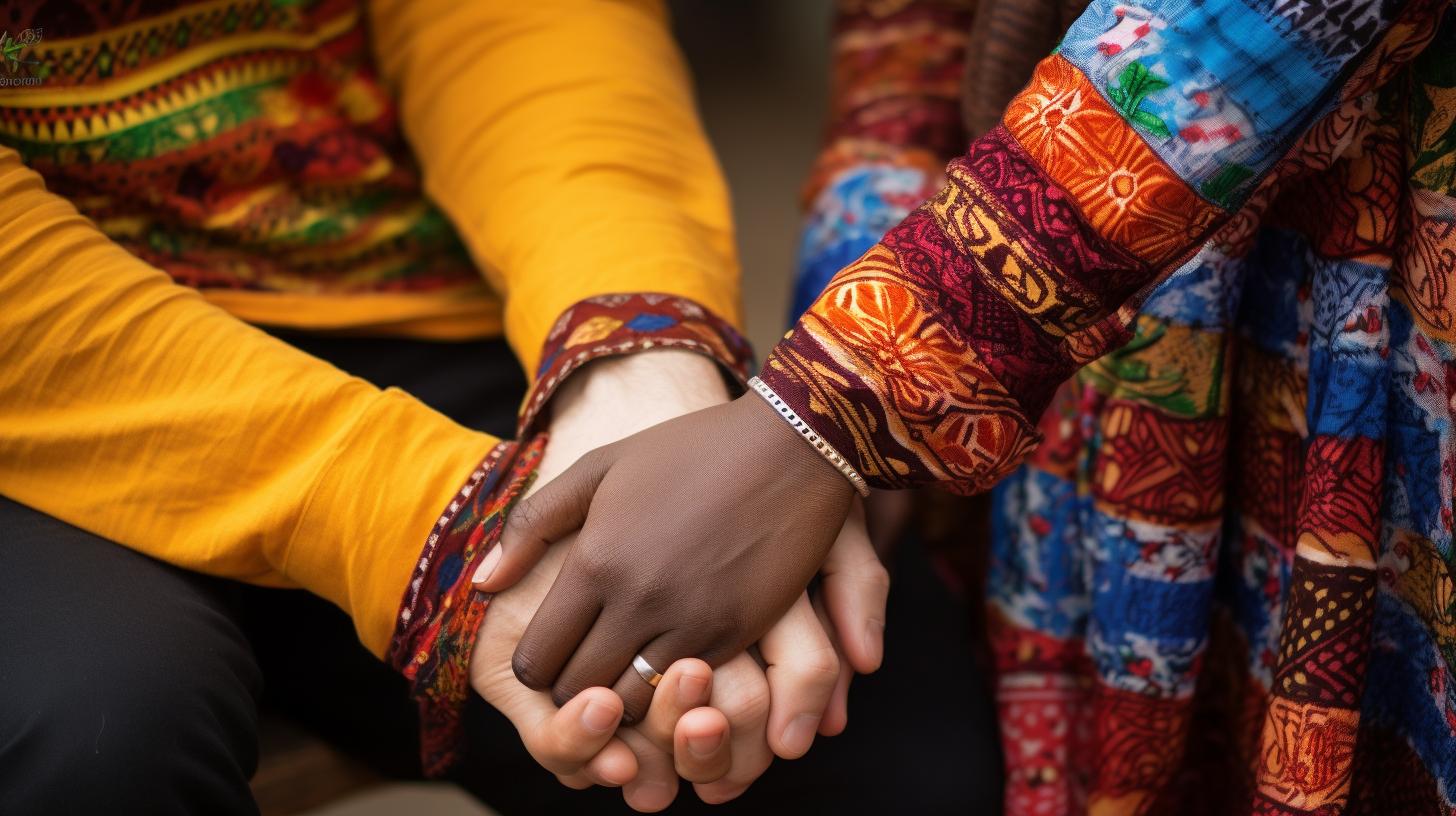Are you planning a cross-cultural wedding and feeling overwhelmed by the complexity of blending different cultural traditions? Planning a wedding is already a daunting task, but adding different cultural and religious backgrounds can increase the complexity. In this ultimate guide to planning your cross-cultural wedding, we will provide you with tips and tricks, real-life success stories, and specific examples of cultural traditions to help you create a memorable and meaningful celebration that honors both partners’ cultures.
Planning a Successful Cross-Cultural Wedding
Learn about the key factors to consider when planning a cross-cultural wedding, including understanding the meaning and importance of respecting different cultures, selecting an appropriate venue, incorporating traditions from both cultures, educating families about cultural differences, working with a wedding planner, staying culturally sensitive, and being flexible and creative throughout the planning process. Real-life success stories of couples who planned and executed cross-cultural weddings successfully are also shared in the article.
Understanding Cross-Cultural Weddings
Cross-cultural weddings are the marriage of two people from different cultural or religious backgrounds. It is a celebration of both cultures and the unique blend of traditions and customs that come together to create something new and beautiful. To plan a successful cross-cultural wedding, it’s essential to approach it with respect, curiosity, and an open mind. Cultural sensitivity is paramount, and it’s important to avoid stereotypes and promote understanding and acceptance.

Venue Selection
Choosing a venue for a cross-cultural wedding can be challenging as it requires considering the cultural needs of both families. Some cultures may have specific requirements for the wedding ceremony and reception. It’s important to find a venue that can accommodate both families’ cultural needs and provide a neutral space for the wedding celebration.
For example, a couple blending Indian and Western cultures may choose a venue that offers separate spaces for a traditional Hindu ceremony and a Western-style reception. Alternatively, they may choose a botanical garden or museum that offers a neutral background for both cultures’ customs.

Incorporating Traditions
Incorporating traditions from both cultures is one of the most exciting and meaningful aspects of a cross-cultural wedding. To blend both traditions seamlessly and create a unique and personalized wedding ceremony and reception, it’s essential to find common ground and unique elements to include.
Here are some examples of incorporating traditions:
- A couple blending Indian and Western cultures may choose to have a traditional Baraat followed by a Western-style reception.
- A couple blending Chinese and Western cultures may incorporate a tea ceremony into their wedding ceremony and serve traditional Chinese food during the reception.
- A couple blending African and Western cultures may incorporate a jumping of the broom ceremony into their wedding ceremony, followed by a Western-style reception.
It’s essential to research both cultures’ wedding traditions, find common ground, and incorporate cultural foods, music, attire, and customs into the celebration.
Educating Families
Educating families about different cultures and traditions is crucial to avoid potential conflicts and promote understanding and acceptance. It’s important to be open and honest with both families about the wedding plans and ensure that everyone is on the same page.
Tips for navigating cultural differences and promoting understanding and acceptance include:
- Providing resources and information about the different cultures and traditions involved.
- Being patient and understanding when answering questions or addressing concerns.
- Finding ways to involve both families in the wedding planning process.
- Highlighting the similarities between both cultures and finding common ground.
It’s important to remember that cultural sensitivity is essential when educating families about different cultures. Avoiding stereotypes and promoting understanding and respect is crucial to creating a celebration that truly honors both cultures.

Wedding Planning Assistance
Planning a cross-cultural wedding can be a stressful and overwhelming experience, especially when both cultures are involved. Hiring a wedding planner experienced in cross-cultural weddings can be a game-changer.
A wedding planner can provide invaluable assistance, such as:
- Helping to navigate cultural differences and find ways to incorporate both cultures into the celebration.
- Providing resources and information about different cultures and traditions.
- Recommending vendors and venues that can accommodate both families’ cultural needs.
- Offering advice and guidance throughout the wedding planning process.
It’s essential to work closely with a wedding planner to ensure that both families’ needs are met, and the wedding celebration is authentic, inclusive, and meaningful.

Success Stories
Real-life success stories of couples who planned and executed cross-cultural weddings successfully can provide inspiration and ideas for creating a unique and personalized wedding celebration.
For example, a couple blending Indian and Western cultures may choose to incorporate a traditional Sangeet ceremony into their wedding, where they dance to Bollywood music. Another couple blending African and Western cultures may incorporate a Kente cloth into their attire, which is a traditional Ghanaian fabric.
By incorporating different cultural traditions into the wedding celebration, couples can create a truly unique and meaningful celebration that honors both cultures.
Real-Life Success Story: A Cross-Cultural Wedding Celebration
Nina and Raj come from different cultures and backgrounds, but they knew from the start that they wanted to celebrate their love in a way that honored both of their traditions. Nina is from an Indian family with strong Hindu roots, while Raj comes from a family with Mexican and American heritage. They both wanted to incorporate elements of their cultures into their wedding day, but they weren’t sure how to make it work.
After some research and soul-searching, Nina and Raj decided to have two ceremonies: a Hindu ceremony followed by a Mexican-American ceremony. They chose a venue that could accommodate both ceremonies and worked with a wedding planner who had experience with cross-cultural weddings. The planner helped them navigate the different traditions and create a cohesive vision for the day.
For the Hindu ceremony, Nina wore a traditional red sari and Raj wore a sherwani. They exchanged garlands and performed the seven vows, or pheras, around a sacred fire. For the Mexican-American ceremony, they incorporated elements of the Catholic faith and exchanged wedding rings. They also had a lively mariachi band and served Mexican food alongside Indian dishes.
Throughout the planning process, Nina and Raj faced some challenges in educating their families about the different traditions and customs. Some family members were hesitant at first, but they eventually came around and appreciated the effort to honor both cultures.
In the end, Nina and Raj’s cross-cultural wedding celebration was a beautiful reflection of their love and respect for each other’s backgrounds. They hope their story inspires other couples to embrace their cultural differences and create a wedding day that celebrates both families’ heritage.

Cultural Sensitivity
Cultural sensitivity is essential when planning a cross-cultural wedding. It’s important to avoid stereotypes and promote understanding and respect for both cultures. It’s also essential to be mindful of cultural norms and expectations and find ways to incorporate them into the wedding celebration.
Tips for avoiding stereotypes and promoting cultural understanding and respect include:
- Educating yourself and others about different cultures and traditions.
- Avoiding cultural appropriation and finding ways to incorporate cultural elements respectfully.
- Being mindful of cultural norms and expectations and finding ways to incorporate them into the wedding celebration.
- Highlighting the similarities between both cultures and finding common ground.
By approaching cross-cultural weddings with cultural sensitivity and respect, couples can create a celebration that honors both cultures and promotes understanding and acceptance.
Flexibility and Creativity
Flexibility and creativity are essential when planning a cross-cultural wedding. It’s essential to be open to new ideas and find unique solutions to blend different cultural traditions seamlessly.
Examples of how couples found unique solutions to blend different cultural traditions include:
- Incorporating cultural elements into the wedding favors or decorations.
- Creating a unique wedding ceremony that blends both cultures’ traditions and customs.
- Finding ways to incorporate cultural foods, music, and attire into the wedding celebration.
- Having a multicultural reception with multiple stations that highlight different cultures and traditions.
By staying flexible and creative, couples can create a wedding celebration that is authentic, inclusive, and meaningful.
Conclusion
| Task | Completed | Notes |
|---|---|---|
| Discuss cultural norms | [ ] | |
| Research cultural foods | [ ] | |
| Determine venue options | [ ] | |
| Find common ground | [ ] | |
| Incorporate traditions | [ ] | |
| Educate families | [ ] | |
| Hire cross-cultural planner | [ ] | |
| Stay flexible and creative | [ ] |
Planning a cross-cultural wedding can be a rewarding experience that celebrates the uniqueness of both cultures. By approaching the process with cultural sensitivity, respect, and creativity, couples can create a memorable and meaningful celebration that honors both partners’ cultures.
From choosing a venue to incorporating traditions and educating families, there are many factors to consider when planning a cross-cultural wedding. By working with a wedding planner experienced in cross-cultural weddings and finding inspiration in real-life success stories, couples can create a unique and personalized wedding celebration that reflects their love and honors their cultures.
Remember to stay flexible, creative, and open-minded, and above all, have fun planning your cross-cultural wedding!




